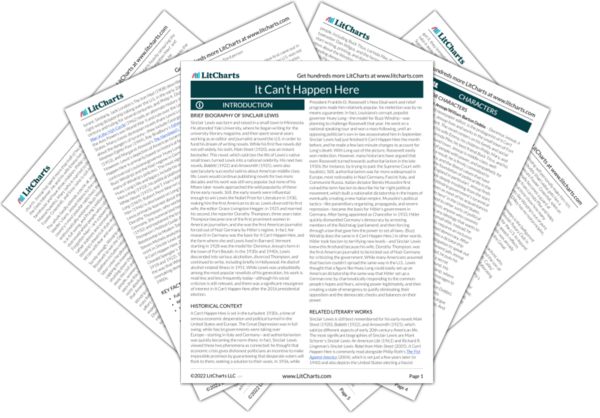Previous
Chapter 24
|
Previous
Chapter 24
|
It Can’t Happen Here: Chapter 25 Summary & Analysis |
Next
Chapter 26
|


Upgrade to unlock the analysis and theme tracking for all of It Can’t Happen HereIt Can’t Happen Here!
Get LitCharts A+